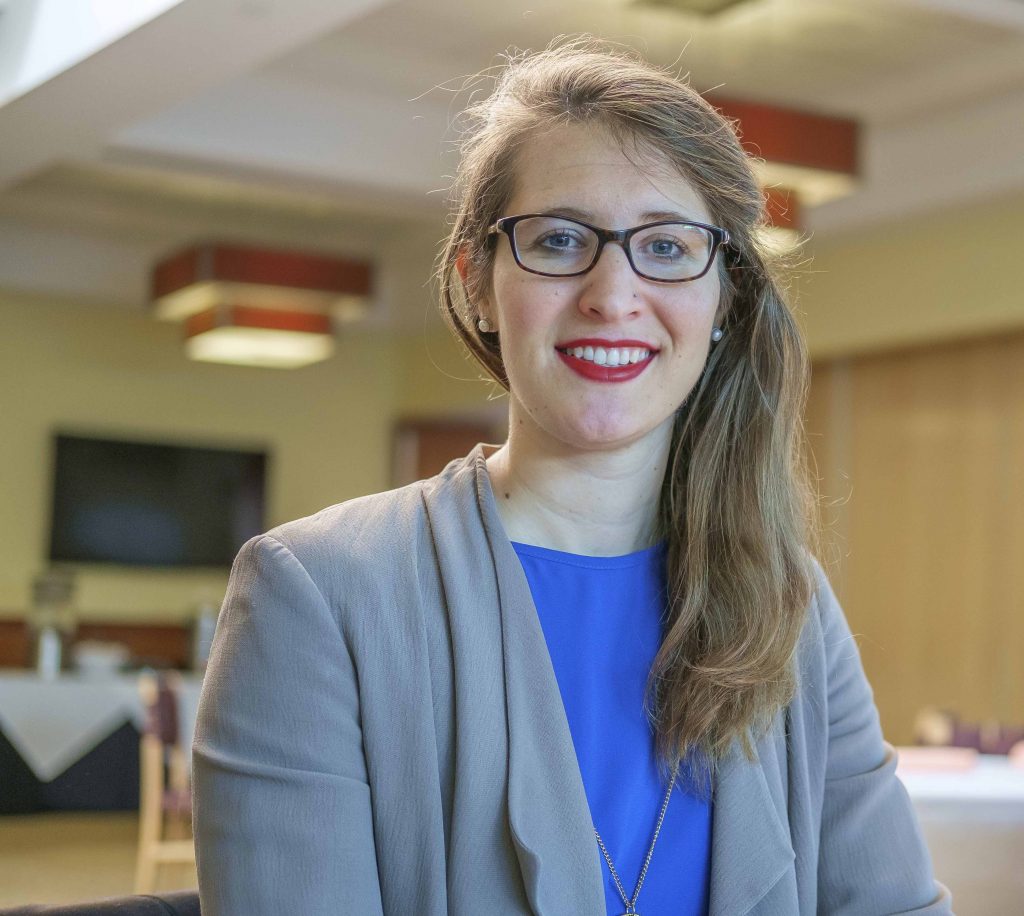
Devan Tracy, ’13, is a singer-songwriter, cyclist and energy engineer at Lockheed Martin with a bachelor’s degree in mechanical engineering from Binghamton University and a master’s in sustainable systems engineering from the University of Wisconsin—Madison. Her talk, titled “The Extinction of Sustainability,” discusses her goal of creating a world where efforts to create a more sustainable future are commonplace. This interview has been edited for length and clarity.
Pipe Dream: Where did you first get your start with sustainability?
Devan Tracy: In addition to the mechanical engineering degree I received here, I chose Binghamton [University] primarily for the sustainability engineering minor program they had just started. Coursewise, I was able to kind of fill that passion here and, as I reference in the talk, my parents have a small construction firm and they’ve done a lot of projects — relocating a house instead of demolishing it. I kind of just grew up in this setting of using the resources you have and doing the most you can with what you have. So it’s kind of a natural progression. I wanted to be an architect originally and it’s kind of come full circle because now I’m working to make buildings more efficient and I just appreciate the tangible side of things.
PD: What is the energy crisis?
DT: We have a limited amount of resources on this planet, period. And we have a population that’s growing, and growing and growing exponentially, period. If both of those things continue, with those trends, we have a problem. So we need to really focus more on developing our alternative energy portion of the grid makeup. There’s a lot of creative ideas out there — using ice to store energy, using flywheels, pumping water up a mountain to store it and then when you need it pumping it down. Even while I was studying here, one of the projects we worked on was using a pickup like you’d use in a guitar, but putting a piezoelectric chip. And if you put it, for example, in a roadway, the pressure from the cars driving over it makes the connection and starts an electrical current. Just the act of a car driving on the road can create energy. If you go to some subways in Europe and Asia, the subway stations are actually lined with these piezoelectric devices so that as you’re walking, this energy is being generated and captured. There’s a lot of unique opportunities out there.
PD: What does sustainability mean to you?
DT: There’s so many definitions out there. My company has their own definition, you’ll have your own definition. Often, the definition is more environmentally focused, like recycling your water bottles, buying organic bananas — these are two examples I give in the talk. But it’s really a lot larger. It’s designing energy efficient operations, understanding the impacts of our products on society in the long term, doing more with less. It’s multidimensional; it’s not as simple as we might make it out to be.
PD: How can students and universities like BU shift to a more renewable, sustainable lifestyle?
DT: It’s not going to happen overnight. The interesting thing about this campus is that the central heating plant used to burn coal and there were student protests while I was going to school here. Since then, they’ve shifted completely off of coal to wood chips. So, [BU] is definitely attuned, combined with some of the solar they’ve got and combined with some of the research that’s going on. I know I’ve been reading about some energy storage going on here, which is huge because you can have as much solar as you want and as much wind as you want, but once the sun goes down and the wind stops blowing, you have nothing. And if you need energy at other times of the day, it has to come from somewhere. So storage is really the next big hurdle we’ve got to tackle. Creating batteries that can hold enough power and efficiently transfer it. So that would be my suggestion — keep on doing what we’re doing here. We’re on the right path.


